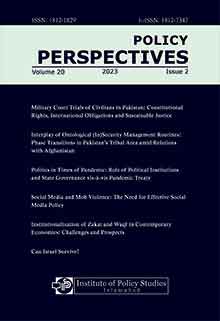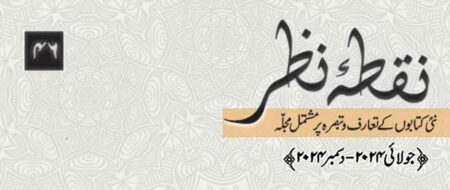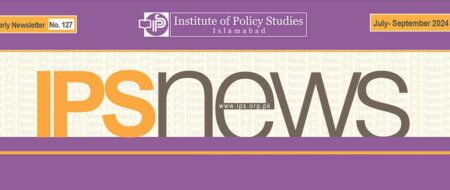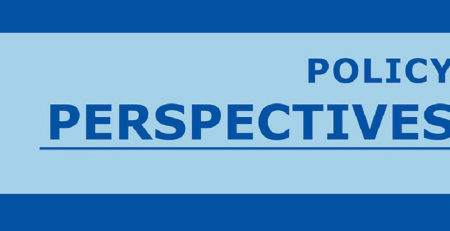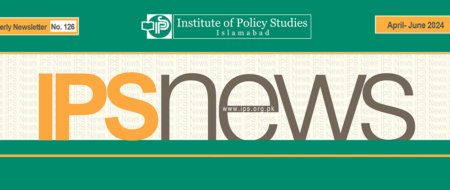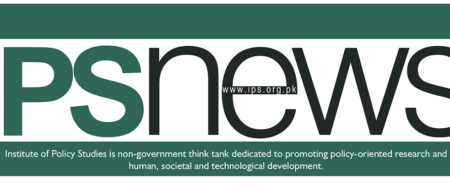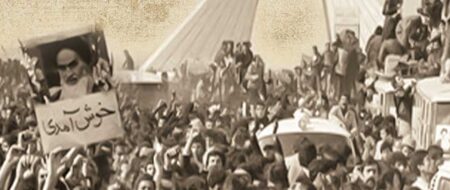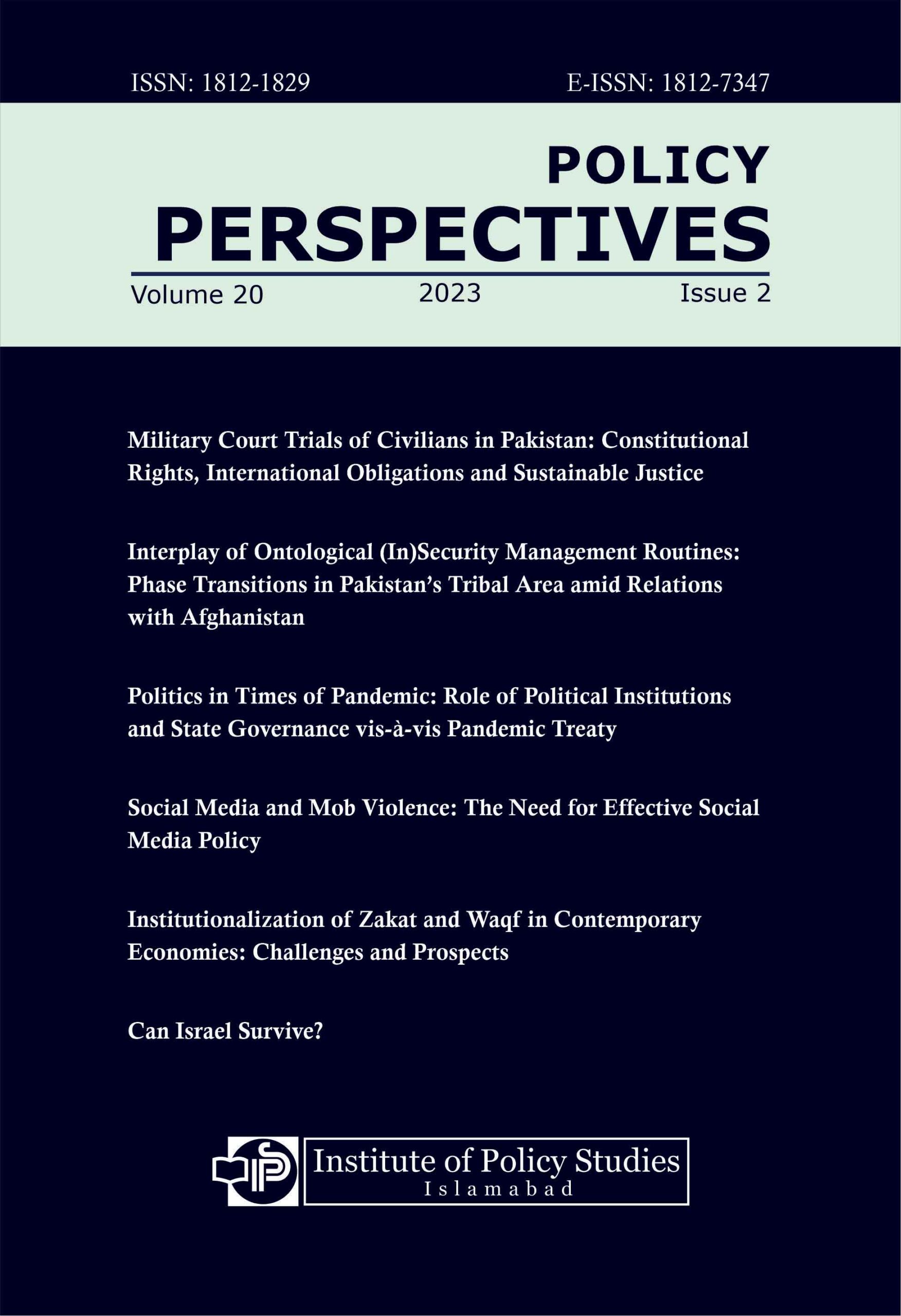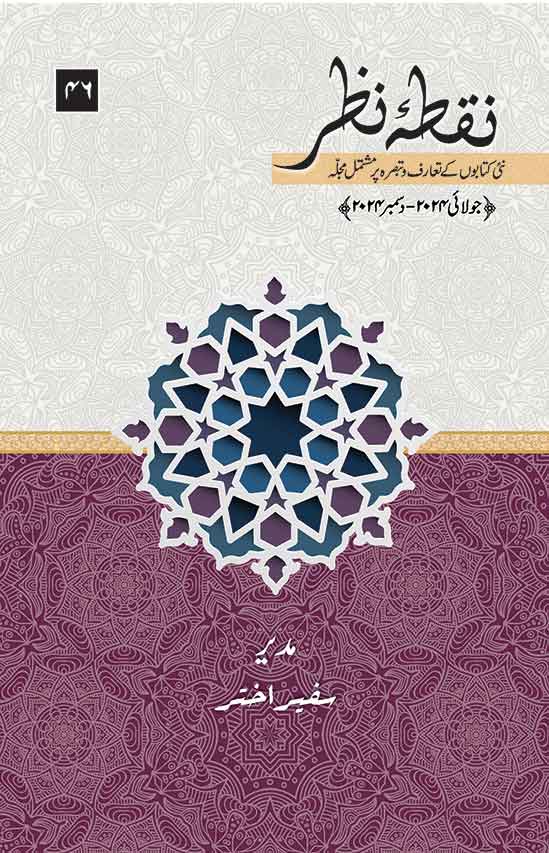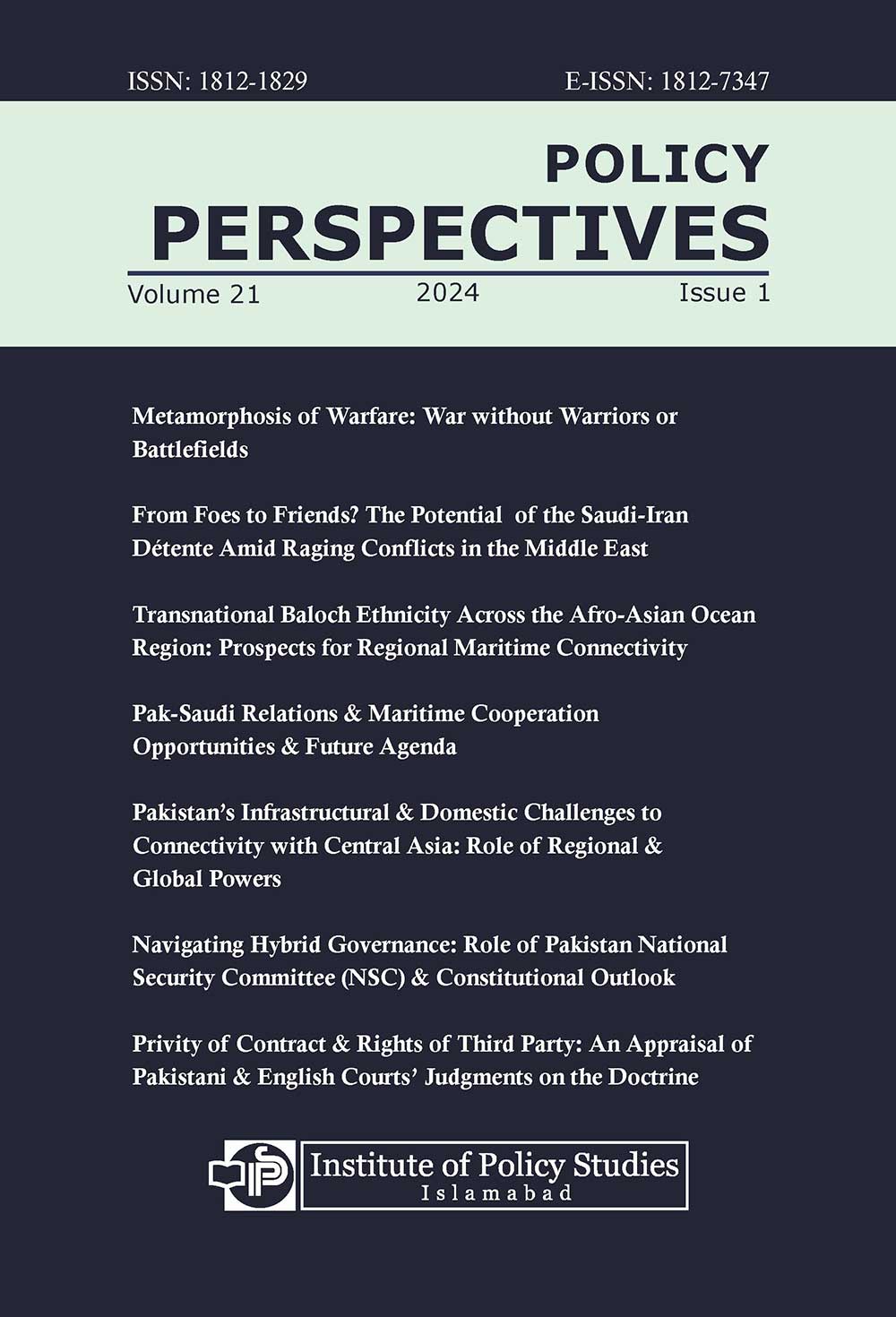Policy Perspectives (Volume 20, Issue No. 2, 2023)
|
Editor-in-Chief: Khalid Rahman Download Contents |
Policy Perspectives (Volume 20, Issue 2, 2023)
The latest issue of Policy Perspectives presents research, analyses and commentary on various topics concerning national, and international issues from policy experts, academics, and practitioners.
The first paper ‘Military Court Trials of Civilians in Pakistan: Constitutional Rights, International Obligations and Sustainable Justice’ juxtaposes the traditional constitutional interpretations with contestations in relevant international instruments and explores the possibility of harmonization. It lays out a futuristic proposal to predict a course for proposed future amendments.
Author: Muhammad Hassan, Lecturer, Dr Muhammad Iqbal Law School, Government College University (GCU), Lahore, Pakistan. Double major, Law and Shariah, International Islamic University Islamabad, Pakistan; LLM, International and European Law, Vrije Uniersiteit Brussel (VUB), Brussel, Belgium.
https://doi.org/10.13169/polipers.20.2.ra1
Dr Farhat Taj in the paper ‘Interplay of Ontological (In)Security Management Routines: Phase Transitions in Pakistan’s Tribal Area amid Relations with Afghanistan’ discusses the ontological (in)security management routines of Afghanistan and Pakistan. She stresses that the complex Pakistan-Afghanistan relationship cannot be fully explained through the theoretical frameworks developed in some distinct contexts and recommends applying theories like complexity theory, to uncover unexplored aspects of the relationship.
Author: Dr Farhat Taj, Associate Professor, University of Tromsø, UiT The Arctic University of Norway, Norway.
https://doi.org/10.13169/polipers.20.2.ra2
In the paper ‘Politics in Times of Pandemic: Role of Political Institutions and State Governance vis-à-vis Pandemic Treaty’ Lala Jafarova focuses on the role of political institutions vis-à-vis the coronavirus (COVID-19) pandemic, which revealed the importance of politics in international health processes. She seeks to analyze how political institutions influence global health governance concept, which is shaped by the political determinants of health. Finally, she explores the potential impact of the WHO Pandemic Treaty for increasing the involvement and participation of political institutions in global health issues.
Author: Lala Jafarova, Representative, Forum of National Ethics Councils (NEC), Madrid, Spain; Administrative Assistant, European Association of Health Law, Bergen, Norway.
https://doi.org/10.13169/polipers.20.2.ra3
Despite its immense potential for bringing about positive changes in personal and social lives, social media has frequently been used to incite people to violence during recent times. The paper ‘Social Media and Mob Violence: The Need for Effective Social Media Policy’ explores the link between social media and mob violence which is explained through the ‘networked riot theory,’ which suggests that the social media can be used to accelerate violence by various groups.
Author: Dr Tughral Yamin, Retired Brigadier; Senior Fellow, East West Institute, New York, United States (US); Founder, Former Professor and Associate Dean, Centre for International Peace and Stability (CIPS), National University of Sciences & Technology (NUST), Islamabad, Pakistan.
https://doi.org/10.13169/polipers.20.2.ra4
Zakat and Waqf are crucial social finance institutions in Muslim societies but their utilization and impact are less than optimal compared to the expectation and potential. The paper ‘Institutionalization of Zakat and Waqf in Contemporary Economies: Challenges and Prospects’, therefore, recommends that both jurisprudence related to the institutionalization of Zakat and Waqf, and their current governance should be revisited in the wake of various changes in the type of production, the process of production, market structure, forms of business organization, income distribution, storable wealth forms, and the functions of a state.
Author: Dr Salman Ahmed Shaikh, Head, Post Graduate Studies, Shaheed Zulfikar Ali Bhutto Institute of Science and Technology (SZABIST) University, Karachi, Pakistan.
https://doi.org/10.13169/polipers.20.2.ra5
The issue also includes commentary on ‘Can Israel Survive?’ by Dr Roger van Zwanenberg. Lastly, the ‘Dialogue at IPS’ section deals with important themes from some topical discussions held at the Institute of Policy Studies during recent months.
The full text of the articles will be available soon at ScienceOpen and JSTOR.



